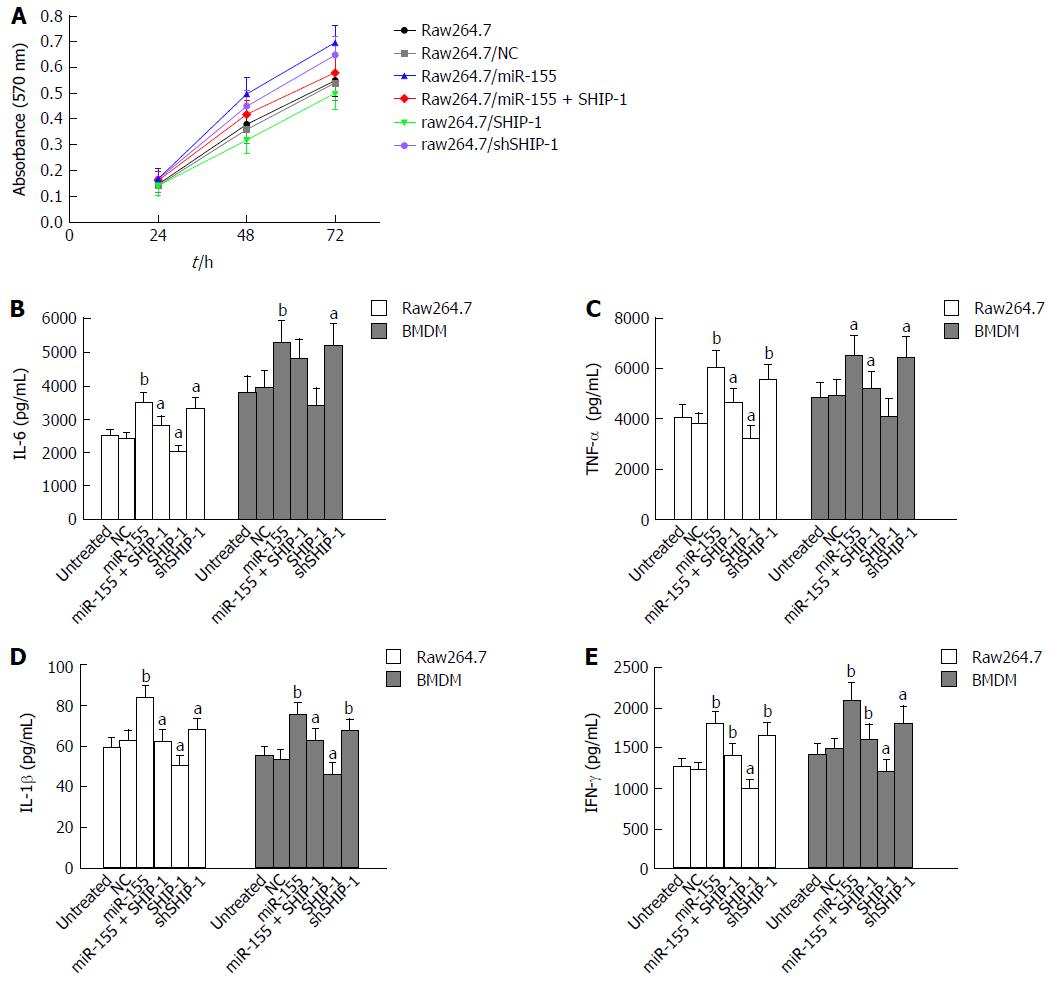Copyright
©The Author(s) 2017.
World J Gastroenterol. Feb 14, 2017; 23(6): 976-985
Published online Feb 14, 2017. doi: 10.3748/wjg.v23.i6.976
Published online Feb 14, 2017. doi: 10.3748/wjg.v23.i6.976
Figure 2 Effects of microRNA-155 and its target SHIP-1 on cell proliferation and pro-inflammatory capabilities.
A: The proliferation rate of raw264.7 cells transfected with miR-155 mimics, the negative controls, miR-155 mimics + SHIP-1 vectors, SHIP-1 expression vectors, or SHIP-1 knockdown vectors was detected by MTT assay. aP < 0.05 indicated there was significant difference between groups. B-E: ELISA analyses of the secretion of IL-6 (B), TNF-α (C), IL-1β (D), and IFN-γ (E) in both the raw264.7 cells and mouse bone marrow-derived macrophages (BMDMs) and the respective cells transfected with miR-155 mimics, the negative controls, miR-155 mimics + SHIP-1 vectors, SHIP-1 expression vectors, or SHIP-1 knockdown vectors. Comparison was conducted between groups: Raw264.7/miR-155, raw264.7/SHIP-1, raw264.7/shSHIP-1 vs Raw264.7, Raw264.7/NC; Raw264.7/miR-155+SHIP-1 vs Raw264.7/miR-155. aP < 0.05, bP < 0.01.
- Citation: Lu ZJ, Wu JJ, Jiang WL, Xiao JH, Tao KZ, Ma L, Zheng P, Wan R, Wang XP. MicroRNA-155 promotes the pathogenesis of experimental colitis by repressing SHIP-1 expression. World J Gastroenterol 2017; 23(6): 976-985
- URL: https://www.wjgnet.com/1007-9327/full/v23/i6/976.htm
- DOI: https://dx.doi.org/10.3748/wjg.v23.i6.976









